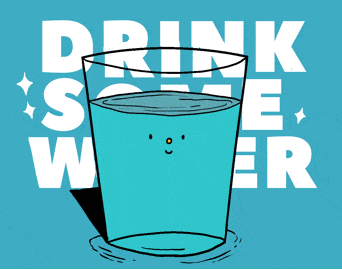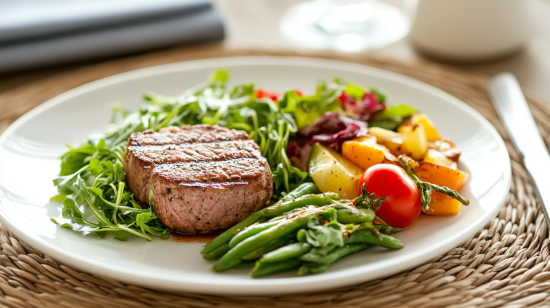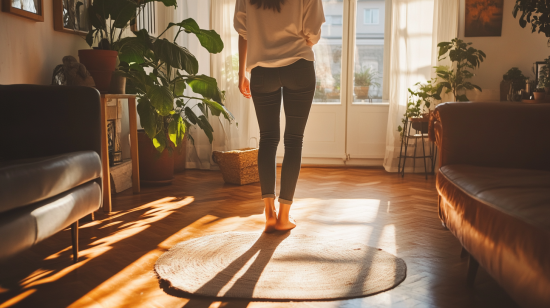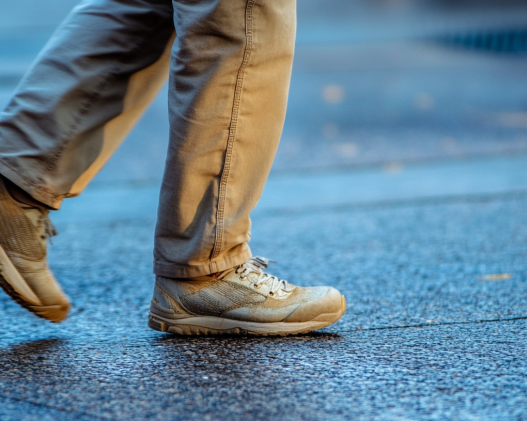It’s a familiar story—every festive season, the weight seems to creep up. Family gatherings, meals with friends, snacks like nuts, and seeds… These joyful moments often lead to unexpected weight gain. For those who’ve worked hard all year to maintain their weight, the challenge is real. How do you balance enjoying delicious food while keeping your weight in check?
But don’t worry! We’ve gathered six easy tips to help you shed some pounds without exercise or dieting. All you need to do is follow these simple tricks, and you’ll be on your way to effortless weight loss.
💧 Drink Water Before Meals
It might sound simple, but drinking 500ml of water about 30 minutes before eating can make a noticeable difference. Studies show that people who do this lose 2-3 pounds more over three months. Drinking water before meals tricks your brain into feeling full, reducing your appetite.

Note: If you gain weight after drinking water, it may be water retention caused by a diet high in salt or intense dieting. Pay attention to your overall salt intake. Water retention is often the result of consuming too much sodium or specific dieting strategies.
Remember: water is great, but alcohol and sugary drinks won’t help you slim down—before or after meals! Both alcohol and sugary drinks can contribute to weight gain and are not ideal for managing your weight.
🥢 Slow Down Your Eating
Eating too quickly can lead to weight gain, while eating slowly can actually help you lose weight. It’s not a myth; studies show that people who eat quickly tend to have larger waists and higher body mass indexes (BMI).
For example, a long-term study from Japan showed that individuals who ate quickly gained more weight over eight years compared to those who ate slowly. This happens because eating slowly allows your body to fully chew food. It increases the thermic effect of food, which helps burn more calories. It also helps you feel fuller, making you less likely to overeat.

To put this into practice, aim to finish your meals in about 20-30 minutes. If that feels hard, try chewing each bite more thoroughly before moving on to the next.
💦 Give Your Food a Quick Dip
If you can’t resist the temptation of greasy, flavor-packed dishes, here’s a quick and easy hack. Dip your food in water before eating. This simple trick reduces the oil content in your food, turning a heavy meal into a lighter, healthier version without sacrificing flavor.
You can use this technique at home or when eating out. It helps reduce fat intake while encouraging a cleaner, more heart-healthy diet. It’s an effective way to cut down on unwanted calories while still enjoying your meals.

🍽️ Change the Order in Which You Eat
Here’s a little-known but highly effective tip. Changing the order in which you eat your food can make a big difference in managing your weight. Studies have found that eating vegetables first, followed by protein, and then carbohydrates can help stabilize your blood sugar levels and even assist with weight loss over time.
Vegetables are rich in fiber, while protein-packed foods like meat, eggs, and fish help keep you feeling full. By eating fiber and protein before carbs, you reduce the insulin spike caused by consuming refined carbohydrates. This order also sends fullness signals to your brain, helping you feel satisfied without overeating.

👯 Stand Up After Eating
After a meal, your blood sugar levels naturally spike. If you sit or lie down immediately, your metabolism slows down. Your body has to work harder to process the excess sugar in your blood. A simple solution is to stand or take a short walk after eating.
One study showed that standing after a meal reduces blood sugar levels by 9.51%. Even a brief walk can lower blood sugar by 17%. This quick movement helps your muscles absorb glucose, reducing the strain on your metabolism and preventing fat storage. So next time you finish eating, get up and move around. Even standing for a few minutes can make a difference!

💤 Get Enough Sleep
Lack of sleep is one of the most significant risk factors for weight gain. When you’re sleep-deprived, your hunger hormones get thrown off balance. This causes you to crave unhealthy, high-calorie foods. Moreover, lack of sleep can mess with your brain’s reward system, making you more likely to indulge in sugary snacks to fight off fatigue.
Studies have shown that simply getting more sleep can help you lose weight without any extra effort. One study found that increasing sleep by just 1.2 hours per night for four weeks resulted in a weight loss of 0.48 kg. For parents and busy individuals, getting more sleep can seem impossible, but it’s crucial for weight management and overall health.

Conclusion
These six simple tips can help you lose weight without the need for intense exercise or strict dieting. By drinking water before meals, eating slowly, reducing oil intake, changing your food order, standing up after meals, and getting enough sleep, you can manage your weight more effectively. With these easy hacks, you can enjoy your meals, maintain your lifestyle, and still see great results in your weight loss journey.



















